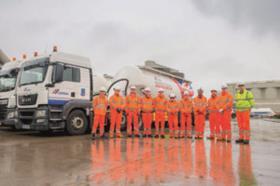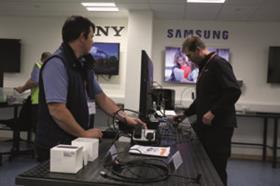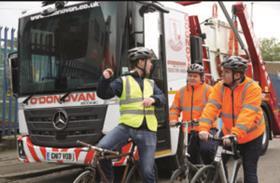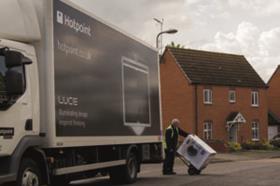There is a packed shortlist for the Training Award, sponsored by Think Logistics, with Cemex, DPD UK, Eddie Stobart Logistics, John Lewis, O'Donovan Waste Disposal and Whirlpool UK Appliances all in the running a

t the 2018 Motor Transport Awards.
The Motor Transport Awards 2018 take place at the Grosvenor House Hotel in London on 4 July.
Training Award (sponsored by Think Logistics)

During 2017, building materials firm Cemex carried out more than 61,000 training interventions for its 3,000-strong workforce (averaging 37 each), from driver-specific guidance through to mental health awareness. It also held its very first Driver of the Year Awards, which included the top 15 drivers of 2017, based on league tables of their sustained performance over the year for fuel efficiency and safe driving style. The judges were impressed with the significant investment Cemex had made in training its staff and its excellent statistics to show the positive impact this was having on the wider road-using community. They could see a strong training culture within the company.

In its first year since launch, DPD UK’s ‘Summer Camp’ training programme has enabled 47 ambitious self-employed delivery drivers to transfer into employed roles as depot shift managers. This succession-planning strategy supports the company’s ambition to double in size by 2025. DPD believes its Summer Camp helps to retain talented people with leadership potential who have its “distinctive DNA” while also saving thousands of pounds in external recruitment costs. Judges said this was an outstanding entry with strong anecdotal evidence. They liked that it was a home-grown programme designed to fit the needs of the business and its growth strategy.

In 2015 the Eddie Stobart Training Academy was launched in Warrington as an in-house facility. In 2017 it announced it was opening the doors to the wider logistics and supply chain sector and in January 2018 a second driving school facility was launched in the Midlands, complementing the existing school.
The Training Academy supports Eddie Stobart’s wider strategy of supplying qualified drivers and warehouse operatives to businesses through its supply-chain resource services.
Judges felt the “first class, modern training facility” was playing a key role in helping to tackle the national HGV driver shortage and was “just the advertisement the industry needs to attract more quality people”.

Judges said this “stand-out submission” offered a very holistic approach to training. The retailer recognised a need to adapt its training to meet changing home delivery trends and completely revamped its approach, including the roll out of its Much More Than a Driver scheme, which enables employees to develop their skills and knowledge to enhance the customer experience. A clearly defined progression path has been established, with technical training now offered in 24 different areas, including wet connections and wall-mounted TV installations. Judges praised this “great, all-round programme” and “pioneering assessment techniques” and liked how it enabled existing employees to progress throughout the company.

London-based O’Donovan Waste Disposal uses a top-down approach to instil a strong safety culture across the business. Its MD is a qualified trainer, and the HQ itself is a registered training centre, with a team of multilingual mentors on hand to support the firm’s 160-strong workforce. Training ranges from efficient driving guidance and waste handling, through to transferable skills such as first aid and the use of defibrillation machines. All drivers also take part in safe, urban driving courses to help protect vulnerable road users. The judges praised O’Donovan’s strong links with the local community and work with local schools to promote road safety and the fact safety was driven from the top-down.

White goods firm Whirpool UK Appliances used feedback from staff to completely revamp its training academy to benefit both new starters and existing employees. It now offers two streams of training from core skills and customer service training for newcomers, through to its “refresher academy” to help upskill existing staff, which they take part in every two years. Judges liked the use of realistic home delivery situations recreated in the training environment, such as replica staircases and loading simulators. They believed the training academy reboot was a “massive success story” and very much liked how Whirlpool used constructive feedback from employees to design the programmes.










